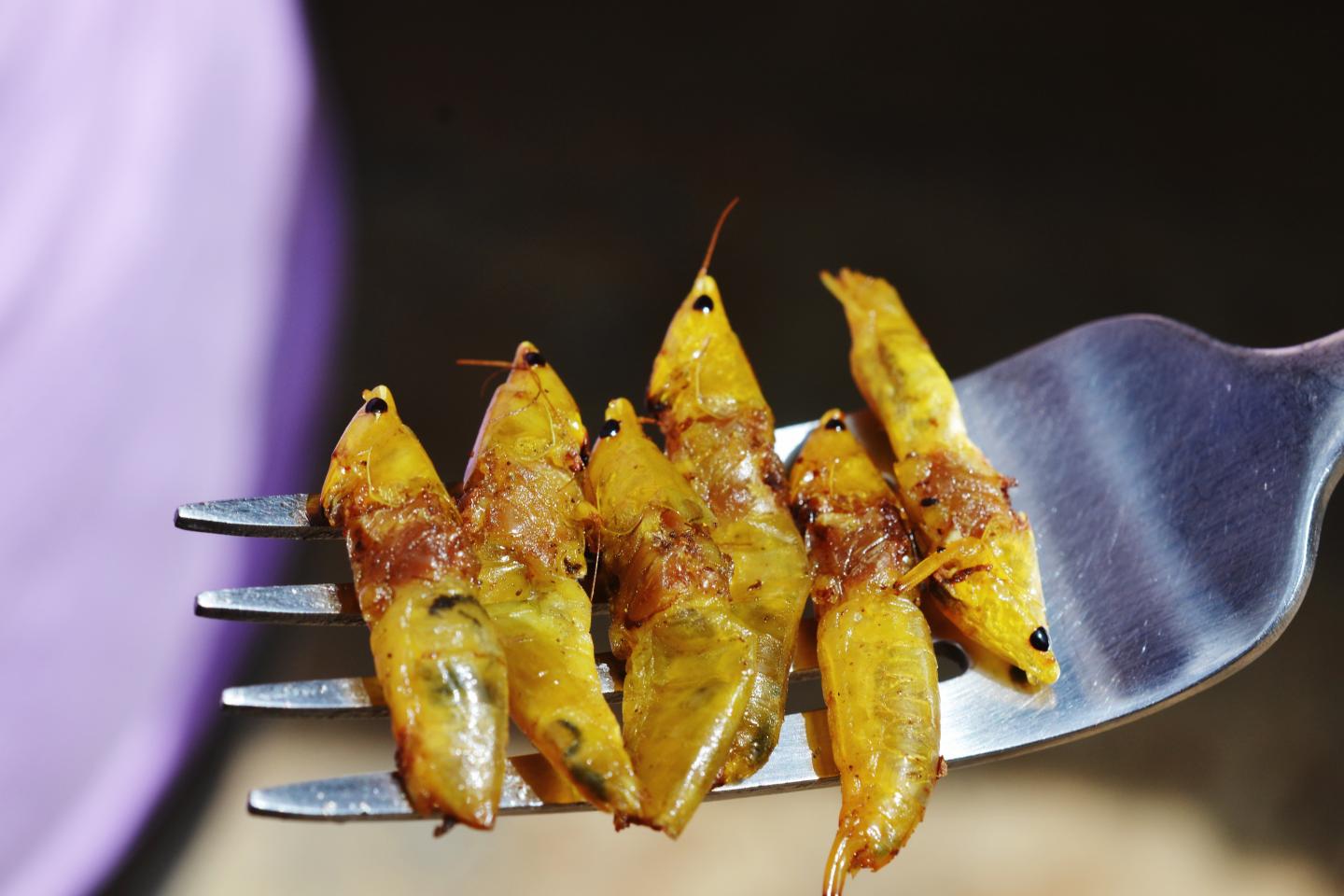
Credit: Vilma Lehtovaara
Many non-vegan vegetarians and omnivores are open to including insects in their diet. For vegans, however, that is not an option, a new study from the University of Eastern Finland shows.
Consumption of foods of insect origin is encouraged as a response to the environmental impact of meat production. Foods made from insects have a relatively low ecological footprint, and due to their high nutrition content, they can be a sustainable supplement to our existing sources of protein.
In Western countries, insects aren’t traditionally regarded as food, and consumers’ willingness to eat foods of insect origin is weak. However, the likelihood of accepting insects as food tends to increase with consumers’ awareness of the environmental impact of food production.
Researchers at the University of Eastern Finland and the University of Helsinki examined consumers’ intentions to consume foods of insect origin among vegans, non-vegan vegetarians and omnivores. They examined the attitude, subjective norm, perceived behavioural control and food neophobia toward the consumption of foods of insect origin, as well as the conditions for eating insect-based foods among these dietary groups. Altogether 567 people participated in the study by filling out an online survey. Out of the respondents, 73% were omnivores, 22% were non-vegan vegetarians and 5% were vegans.
Vegans held the most rigid negative attitude toward consuming foods of insect origin, and their subjective norm to eat insects was weaker compared to that of omnivores and non-vegan vegetarians. Vegans’ perceived behavioural control over their eating of insects was stronger compared to that of omnivores and non-vegan vegetarians. Furthermore, vegans were significantly more determined than others that they would not eat foods of insect origin, even if they were nutritious, safe, affordable, and convenient. Vegans’ weak intention, negative attitude, and low willingness to eat insects in the future exhibit their different dietarian identity compared to that of omnivores and non-vegan vegetarians.
Non-vegan vegetarians, on the other hand, held the most positive attitude toward eating insects, and both non-vegan vegetarians and omnivores thought that insect consumption is wise and offers a solution to the world’s nutrition problems. By contrast, vegans thought that insect consumption is irresponsible and morally wrong.
“This is something we expected: we expected there to be differences between these three groups, and we expected vegans to have the most negative attitude towards eating insects. Vegans see insects as living beings, just like any other animals. It was also highlighted in the vegans’ survey responses that eating insects in the West doesn’t solve the world’s shortage of food, especially when edible food goes to waste all the time,” Professor Anna-Liisa Elorinne from the University of Eastern Finland says.
However, the findings can’t be generalised to all people representing the studied dietary categories. The researchers used convenience sampling, which has probably created a selection bias in terms of a more positive attitude toward insect consumption among the respondents compared to that of the population in general. Furthermore, the respondents were mostly women, highly educated, and city dwellers, a demographic profile known to impact food choice.
###
For further information, please contact:
Professor Anna-Liisa Elorinne, University of Eastern Finland, tel. +358 503307603, email: [email protected]
Research article:
Insect Consumption Attitudes among Vegans, Non-Vegan Vegetarians, and Omnivores. Anna-Liisa Elorinne, Mari Niva, Outi Vartiainen, and Pertti Väisänen. Nutrients. DOI: https:/
Media Contact
Anna-Liisa Elorinne
[email protected]
358-503-307-603
Related Journal Article
http://dx.




